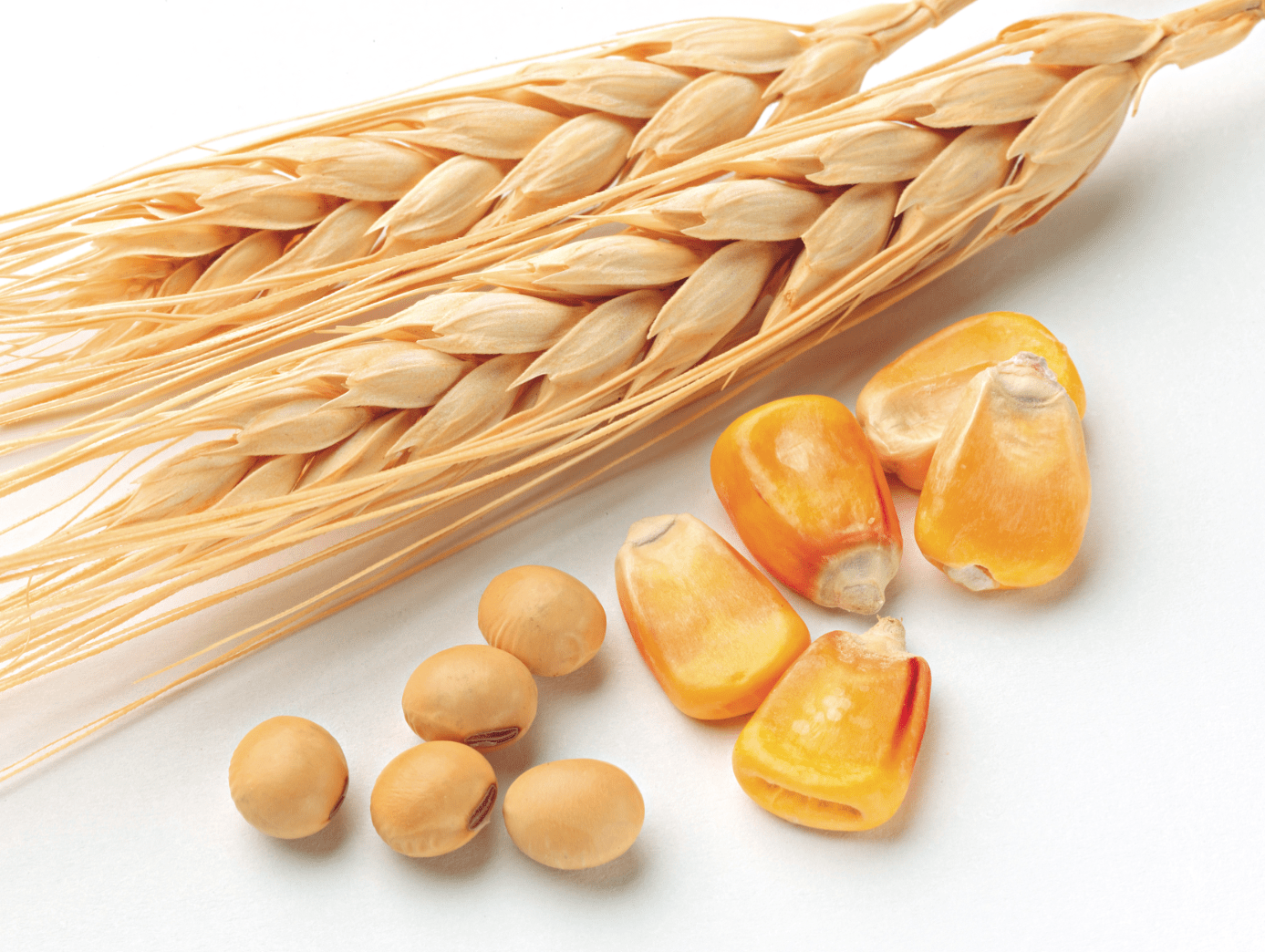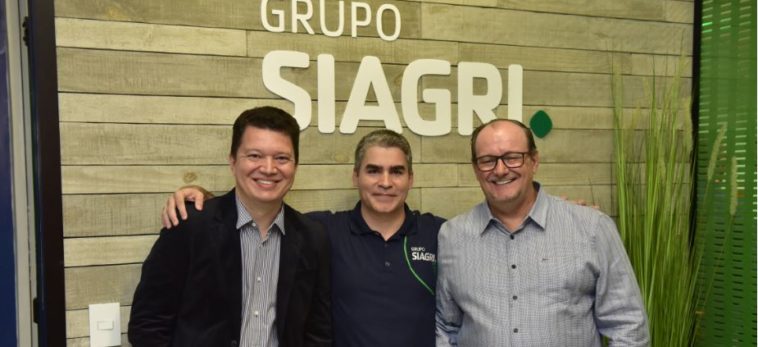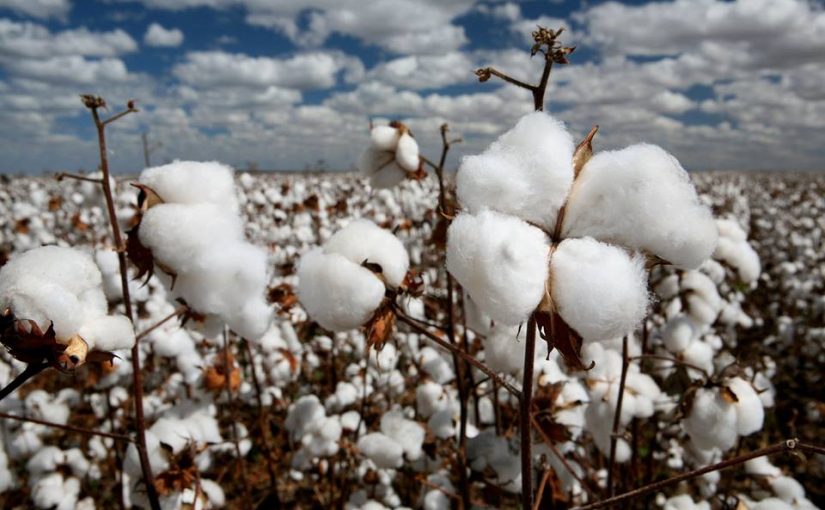RIO DE JANEIRO, BRAZIL – The entrepreneur and son of farmers Nailton Ficagna
is at the head of two innovative agri-related companies.
The first, already consolidated, is SSCrop. It sells a complete farm management software package, which combines all production stages. With the system, farmers are able to achieve optimal control of agribusiness management.The other company is Aproxima Grãos, which aims to simplify the purchase and sale of grains. In a simplified way, it joins grain sellers and buyers.
The startups are accelerated by Cyklo Agritech and emerge due to the innovation factors.

Agritech Academcis Introduce Solutions
Organized by the mining company Satis, the Work&Play Challenge already has its winners. Over 200 agronomy and agronomic engineering scholars from across Brazil signed up for the competition, resulting in 32 projects selected for the evaluation stage. The initiative prompted participants to introduce solutions for use in the field, focusing on plant nutrition, with the challenge of optimizing the nitrogen cycle in soybean cultivation. The winners were announced on July 8th.
Willian Araújo, a student at the São Paulo State University (UNESP), took first place. His project proposed the use of a technology that uses dark septate class fungi to encourage the plants’ ability to accumulate nutrients, helping root and vegetative development. The academic at the Federal University of Goiás (UFG) Amanda Bueno took second place. Her work uses silicon to contribute to the protection of the nodules present in the roots that act on the plant’s metabolism.

Digitalization of Processes in Agro
The Assinei, a Siagri Group startup company that develops technology for agribusiness management, has launched an interesting product for agribusiness. The platform helps agribusinesses automate contract and document management processes. Under the leadership of Michely Souza , the company is based at Conexa, the group’s innovation hub in Brazil’s Midwest region.
The Assinei agritech startup emerged with the goal of simplifying the manager’s life. The platform is able to create contracts and documents, control and send to digital signature. These files are stored in the cloud, inside the solution, in an organized way. Another benefit is that saved contracts and documents are easily monitored and safely stored.
“Relationships are formalized from a distance and with legal security. Companies can remotely collect signatures and recognize them. Contracts can be signed in the home office, through the computer,” explains Michely Souza.
The startup CEO also says that the solution can be integrated with any ERP (business management software), helping important transactions of supplies distributors and agricultural stores. “With Assinei, some processes become more agile. An example are sales orders. If the store manager is not present in the office, he can sign the request and authorization from anywhere, through a link received in his e-mail or by SMS”.
Another document that can replace the handwritten signature with the digital one is the agronomic receipt. The signature allows the agronomic engineer to sign the document directly from his smartphone, with just a few clicks and quickly.

Sustainable Cotton
The Programa Algodão Brasileiro Responsável (ABR), an initiative of the Brazilian Association of Cotton Producers (Abrapa) and its state affiliates for certification of sustainable lint, which was formerly limited to the farms producing the fiber, now reaches the cotton processing units (UBA).
In short, the “cotton plants” were the only link in this long production chain in Brazil that still required certification. The guiding concept is sustainability with environmental, social and economic concerns. As a result, the trajectory of a cotton garment will be potentially traceable from end to end.
Since 2012, the system helps to make Brazil a global champion of sustainable fiber, licensed by the Swiss NGO Better Cotton Initiative (BCI) , an international reference on the subject. Brazilians have established eight assessment criteria: labor contract; ban on child labor; ban on slave-like labor or work in degrading or undignified conditions; freedom of union association; ban on discrimination against people; safety, occupational health, and the work environment; environmental performance and good practices, and a further 170 items for verification and certification.
According to the president of ABRAPA, Milton Garbugio, it is in the context of crisis that the sustainability effort needs to be redoubled. “We are learning to work under new protocols, and the textile activity was one of the first to feel the impact of the pandemic. Unfortunately, this sector is still going to suffer severely for a while. But we believe that sustainability is not about doing good for customers, it’s about survival for people and companies,” he points out.

Three Marias Promotes Business Day and Auction
Angus steer genetics will be in evidence at the 8th Day of Business and Auction held by the Três Marias Agribusiness Farm, owned by Dorival Carlos Borga, from Videira (SC). With an offer of 34 Angus bulls, nine trios of Angus females and one individual Angus female, the online auction will take place on August 1st, from 1 PM. The live broadcast will be held through Pampa Remates channel, responsible for the event.
The gavel will be commanded by auctioneer Candido Scholl. More information is available at (46) 99976-0085 and (49) 99906-6338.
Horse University Recommends Equestrian Products
Horse specialist and owner of the Horse University , in Sorocaba (SP), Aluisio Marins advocates the use of the Equistro line products. According to him, the Equistro brand has a long history of results worldwide. The world’s top riders and horsewomen use Equistro®,” said Aluisio Marins.
“Health and nutrition go hand-in-hand. One depends on the other. The key point is to provide the horse with what it needs to perform what we expect in terms of performance. Quality supplementation is indispensable. And the best line is Equistro®,” ensures veterinarian Aluisio Marins. More information is available at the Equistro® line.
Without Losing a Drop of Milk
Parana’s cattle breeders can evolve in dairy productivity using the zero-discards solutions of the Vetoquinol Solve Program plan. Simone Slob Erkel is a veterinary doctor and owner of Morro dos Ventos Farm, in Carambeí (PR). She has a herd of 1,000 dairy cows, 460 of them in lactation.
The farmer stresses that she obtained excellent results in terms of internal and external parasite control with the use of the Vetoquinol Saúde Animal sanitary protocol.
The products of the “Zero Milk Discards” package allow the treatment of the lactating herd with productivity improvement. As a result, all milk produced can be marketed.
“I use several products of the ‘Descarte Zero’ line that contribute to the treatment and control of diseases that cause economic losses and affect the welfare of animals. In the past, a considerable amount of milk had to be disposed of due to drug residues and the damage was great. Today, this no longer occurs, since the shortfall is zero,” she says.
On her property, Simone uses Descarte Zero Solutions for the control of external and internal parasites and for the cure of infections, such as the Acura single-dose antimicrobial for the treatment of infections in lactating cows, and Tolfedine CS, an anti-inflammatory for the treatment of pneumonia and acute mastitis.

Agroleite Will be Held in 2021
The giant Agroleite, the technical event for all stages of the milk chain, was cancelled this year. However, the organization is steadily pushing ahead to the 2021 edition, when, we all hope, the pandemic has passed.
The event takes place in Castro (PR), known as the national milk capital. In addition to being focused on milk technology, Agroleite is complemented by an animal display, dairy tournament, calf club, auction, field day and machine dynamics.
The event also hosts forums, international seminars and panels to discuss genetics, food, animal quality, milk quality and technologies focused on the sector. There is also an area for agriculture, swine and sheep breeding important productive sectors of the event.
“The moment we are experiencing is very sad, as is announcing the cancellation of an event that moves an entire business chain. We followed the government guidelines for the holding of events and made this decision together with the Cidade do Leite investors and the Agroleite sponsors, who shared the concerns for everyone’s safety,” said the president of Castrolanda, Willem Berend Bouwman.
In all its history, this is the first time Agroleite has been cancelled. Each year, the event has established itself on the national and international stage of the milk production chain. In 2019, it generated R$78 million in business, with the presence of 259 companies and 75 thousand visitors.
The next edition is scheduled for August 10th to 14th, 2021.

Egg Quality
The nutrition of egg-laying fowl directly influences the development, size and quality of eggs; depending on the raw materials and ingredients used in the feed, the use of additives may be required to improve these aspects.
According to Laureano Galeazzi, Auster Nutrição Animal’s product manager, “additives can help improve the quality of egg shells and internal quality parameters, such as egg white density and yolk structure, and promote egg enrichment.”
In addition, it is important to analyze if there are any birds with infections, which can interfere with egg production. “Some infectious agents can have harmful effects on oviduct cells and nutrient metabolism, directly affecting the quality of these eggs. This is the case with infections such as mycoplasma and bronchitis, which interfere with calcium and consequently the shell development. The presence of toxins and mycotoxins from bacteria that affect the liver can reduce the digestion and absorption of nutrients, affecting production,” says Laureano Galeazzi.
“Some feeds with plant ingredients can lead to the emergence of mycotoxin-producing fungi, and the use of additives can fight them. On the other hand, corn feed with low carotenoids can produce eggs with pale yolks,” adds Laureano Galeazzi.
According to Auster’s product manager, some studies also show the benefits of organic minerals, such as zinc, manganese, copper and selenium, which have specific effects on the oviduct, reflecting on shell quality and the internal quality of eggs, as well as their enrichment; and iron, which has an effect on shell pigmentation with direct impact on red egg strains.

